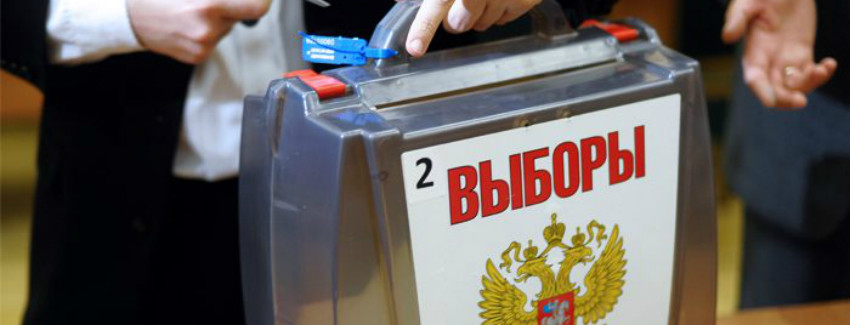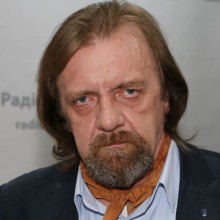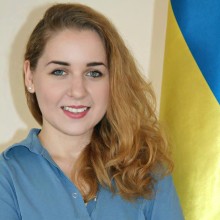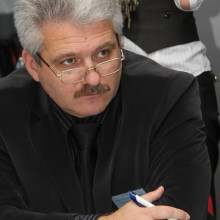Yurii Smelyanski
expert of the Maidan of Foreign Affairs
In yet another attempt to convince the international community that the occupied Crimea has permanently become part of the Russian Federation, the Kremlin is once again violating the laws of its own state.
In accordance with the Constitution of the Russian Federation, the Russian electoral system is regulated by the federal laws (articles 3; 10; 12; 32; 62; 81; 84; 94; 95; 96; 97 and others.) There are also the federal laws “On elections of deputies of the State Duma of the Federal Assembly of the Russian Federation”, and “On the Basic Guarantees of Electoral Rights and the Right to Participate in a Referendum of the Citizens of the Russian Federation” (2002).
In 2014, in accordance with the current legislation, the Central Election Commission of the Russian Federation, announced that elections would be held on December 4, 2016. However, in the spring of 2015, the State Duma of the VI convocation began considering moving the elections from December 4, 2016 to an earlier date. The second and third Sunday of September, as well as various dates in October and November 2016 were named as the possible early election dates. In the end, in July, the amendments to the relevant federal law that allowed the elections to be moved to the third Sunday in September have been adopted by the Duma and signed by the President. This decision applies not only to the election of 2016, but also, to all subsequent elections to the State Duma. Shortly before the final adoption of the amendments, the Russian Constitutional Court of Russia had examined their legality and ruled that a one-time slight deviation from the constitutional five-year cycle of the State Duma of the Russian Federation did not contradict the Supreme Law.
On June 17, 2016 Russian President Vladimir Putin signed a decree #291 according to which the election of deputies of the State Duma of the Federal Assembly of the Russian Federation of the new convocation was set for September 18, 2016.
Under the current law, the State Duma elections are held on a mixed system. It means that one will vote both for a party list (single Federal District) and for the candidates in a single mandate districts.
Half of the 450 seats will be elected by proportional representation from closed party lists The other 225 seats are elected in single-member constituencies
The federal list consists of the one federal group of candidates and several regional groups. The federal part of the list may be no more than 10 candidates, and the number of the regional groups should be at least 35 with no upper limit specified by the law. The number of candidates may range from 200 to 400 people.
In Russia, the party decides how to nominate its candidates. In 2016 there were two main ways of nomination — the primaries and by the Party Congress. In the first case, the candidate has to go through the procedure of primary elections where he is voted for either by the electors or by all citizens. However, even if the party has held the primaries, the party leadership is not obliged to nominate the winners as candidates. For instance, on May 22, 2016, Edina Rossiya held the primaries that any Russian citizen could vote at. The winners of the primaries had been promised the party nomination for the State Duma. However, later, without an explanation Edina Rossiya removed a number of winners from the nomination list and put forward people who either lost in the primaries or did not participate in them at all. Several smaller parties not represented in the State Duma of Russia also held the primaries.
The preparations for the 2016 State Duma elections have included the Russian-occupied Crimea. The peninsula has been divided into the 4 single-member constituencies — one for Sevastopol and three for the rest of Crimea. Despite the fact that in 2014 the occupants conducted census throughout the occupied territory, the data on the number of voters was taken from the 2012 elections to the Verkhovna Rada of Ukraine.
|
Elections (Year) |
Crimea AP |
City of Sevastopol |
Total number of voters |
|
2012 |
1521509 |
303066 |
1824575 |
|
2016 |
1450130 |
303742 |
1753872 |
The data shows that in the occupation period the population decreased by 70703 person. However, these data is not accurate since, according to the representatives of the collaborationist government in Sevastopol, about 100,000 people came to Sevastopol to the Russian mainland during the same period. So, clearly the real number of voters doesn’t interest the occupation authorities.
The total of 22 political parties will participate in the upcoming elections to the State Duma. Of these, the following 17 political have nominated their candidates in the occupied territory of Crimea:
- United Russia
- Great Fatherland
- Party of Growth
- Rodina
- Party of the Future Parents
- Volta
- Civic Platform
- Communists of Russia
- Communist Party of the Russian Federation
- Liberal Democratic Party of Russia
- PARNAS
- Patriots of Russia
- Native Party
- Yabloko
- Russian Party of Pensioners for Justice
- Russian Ecological Party” The Greens “
- Fair Russia
All is all, 149 candidates from the electoral districts of the occupied Crimea, including 137 nominated by the political parties and 12 — self-nominated, were supposed to run in the election.
Of the 127 people on the party federal list, including 27 in the single-mandate constituencies. In addition to those, 10 self-nominees from the single-mandate constituencies have been also supported..
However, 37 candidates — all the self-nominees and candidates from such parties as the Great Fatherland, Party of the Future Parents, Volya and the Native Party — were refused registration; two — withdrew their candidacies after the registration and one lost the nomination on his party’s decision.
In the end, the Central Election Commission of the Russian Federation has registered 109 candidates for the elections in the occupied territory. 88 of them people have registered their residence in the occupied Crimea. Consequently, these people in addition to the passport of the citizen of the Russian Federation have a Ukrainian passport.
For the reference.
RUSSIAN FEDERATION
Federal Law “About the Election of the Deputies to the State Parliament (Duma) of the Federal Assembly of the Russian Federation”.
Article 4. Electoral rights of citizens of the Russian Federation at the election of the deputies to the State Duma.
7. A citizen of the Russian Federation that has a citizenship of a foreign state or a residence permit or another document that proves the right of a citizen of the Russian Federation to live on the territory of a foreign state has no right to be elected to the State Duma.
13. A citizen of the Russian Federation that was nominated for a deputy of the State Duma including the list of the federal candidates, must close all his accounts, seize the cash savings and savings of valuables in the foreign banks that are located outside the territory of the Russian Federation and (or) carve out foreign financial tools before handing in to the election commission the documents that are necessary for his registration as a candidate, and a registration in the relevant federal list of candidates.
RUSSIAN FEDERATION
FEDERAL LAW “About the Main Guarantees of the Electoral Rights and a Right to Participate in a Referendum of the Citizens of the Russian Federation”
Article 4. A General Electoral Right and the Right to Participate in a Referendum
3-1. Citizens of the Russian Federation that have a citizenship of a foreign state or a residence permit or another document that proves the right of a citizen of the Russian Federation to live on the territory of a foreign state have no right to be elected. Such citizens have the right to be elected to the local government bodies if it is allowed by the international agreement of the Russian Federation.
Article 29. Status of the Members of Commissions
1.The following people can not be chosen to be members of the commission and have a casting vote: Членами комісій з правом вирішального голосу не можуть бути:
а) people who do not have a citizenship of the Russian Federation and also citizens of the Russian Federation that have a citizenship of a foreign state or a residence permit or another document that proves the right of a citizen of the Russian Federation to live on the territory of a foreign state.
What does a federal law of the Russian Federation (RF) tell us about the situation with the elections to the State Duma of the RF that are to take place on September 16 in the occupied Crimea? All 88 persons with the Crimean registration, nominated for the deputies to the State Duma, are citizens of the Russian Federation and citizens of Ukraine. Before the occupation all of them worked somewhere, were paid salaries by Ukrainian companies and organizations, opened accounts and took loans at the Ukrainian banks. That is why, and it is mentioned in the given excerptions from the Russian laws, they have no right to be elected and correspondently nominated for the deputies to the State Duma of the Russian Federation. The same situation is with people who will work as members of the election commissions of any level in the Crimea. In case, if at least one candidate should be elected on the territory of the occupied Crimea, the State Duma of the Russian Federation loses its legitimacy as a deputy from the occupied territory of the Crimea was outside the legal field of Russia during the elections. The reasons:
1. Candidates (a chosen deputy) registered in the Crimea, are also, in this situation, citizens of Ukraine. It is forbidden by the law of the RF.
2. Final decisions made by the election commissions formed on the territory of the occupied Crimea from the dwellers of Crimea will be illegal as during the decision making processes citizens of Ukraine were taking part. It is also forbidden by the election law of the RF.
Judging from the things mentioned above, any decision, made by the new members of the State Duma with the participation of the deputies from the occupied territory of Autonomous republic of Crimea and the city of Sevastopol, will not have any judicial power as the people who are outside the legal field of the RF will vote for it.
Possible recommendations.
1. To all the dwellers of the occupied territory of Crimea. No matter whether they burnt their Ukrainian passports, tore them, threw them away or gave them to the Russian immigration service or keep them at home – they should refuse to participate in the upcoming elections on September 18, 2016 – both as deputy candidates or members of the election commissions.
2. If the first recommendation is unacceptable for them then they must give back their foreign passports. They will not need them any more as all of them will be included into the lists of people for whom foreign visas will not be granted and/or the very entry into a foreign country that respects an international law will be forbidden.
3. To Ukraine – to congratulate the RF on the election of the illegitimate parliament.
4. To the Ukrainian government – to apply effectively a created by the Russian government tool to press the occupants on all political and diplomatic levels; to register all the candidates, members of the election commissions (if possible) and check the information about the official refusal from the Ukrainian citizenship of those people who were Ukrainian citizens by the time they started their work in the election commissions or were nominated deputy candidates; to open occurrences against the Ukrainian citizens who participated in the elections and to inform the world community about that; to register all Russian citizens who participated or organized elections on the territory of the occupied Crimea; to impose sanctions against such citizens and to open occurrences against them; to suggest the countries who introduced sanctions against Russia after the invasion and annexation of the Crimean peninsular to implement the same attitude to the mentioned above citizens; to prepare a political and legal justification of the non-recognition of the legitimacy of the new State Duma that will be elected in 2016 with all the following consequences; to work out a system of legal arguments as to the non-recognition of the legal power of the Russian delegation in the cross-parliamentary and other international organizations; to monitor and draw attention of the foreign countries to the impossibility of the participation of such “deputies” elected from Crimea and the city of Sevastopol in the work of international organs, delegations of the RF to these countries.













